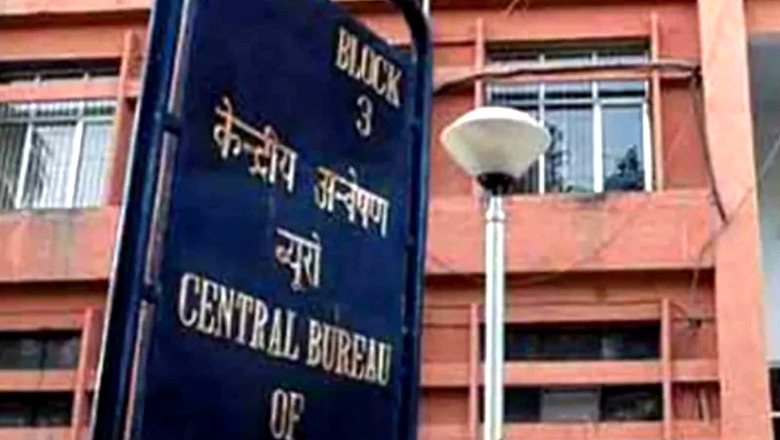
views
Decks have been cleared for the chiefs of CBI and the Enforcement Directorate to stay on their posts for three more years after the end of their two-year tenure.
The government issued a notification to the effect after amending Rule 56(d) of Fundamental Rules, 1922, making the two high-profile posts eligible for tenure extension. As per the existing rule, the Defence Secretary, Home Secretary, director of the Intelligence Bureau, and R&AW secretary are eligible for two-year extension. The Defence Secretary and Home Secretary are allowed three months more over and above the two-year extension.
Bureaucrats who handle key posts, however, say that such extensions would increase backlog, forcing sections of officers to retire without getting a shot at top-level posts.
An official told News18 that the permanent executive structure is already facing backlogs due to additional charges given to a set of officers in “public interest”. “And this step would further enhance the issue of succession and promotion,” the official said.
A senior bureaucrat serving currently agreed. “There is already massive backlog, and bureaucrats after serving for 30-35 years are forced to retire without holding top posts even when there are vacancies. Extension to officers would eliminate chances of multiple batches, increasing issues of succession and promotion,” the bureaucrat told News18.
Officials, however, point out that the practice is not new and has been done by all governments, with instances of CBI chiefs serving for more than the mandated two years. MG Katre headed the CBI for 4.5 years from 1985 to 1989. KVR Rao also served as CBI director from 1993 to 1996.
“This is not a new thing the bureaucracy is facing. It has been done earlier as well in all positions. There have been directors who served more than two years in the CBI earlier as well. I don’t think it is something new which has been done by the government, except putting it on paper now,” NR Wassan, former special director CBI and former special DG NIA, told News18.
Asked whether it would lead to ‘committed bureaucracy’, Wassan said, “Certainly, committed bureaucracy would be an issue. Many of them would be committed to the political class, but not all of them.”
Other voices say the move would dent the bureaucratic structure, making civil services irrelevant. “In my view, civil services are becoming irrelevant. It is better to pick people just like that. Career aspirations that newly joined civil servants have or used to have will be gone. Top posts are always handpicked. No one can claim it’s right. It is completely upon the government whom to pick,” Jyotirmay Chakravarty, former special DG who took voluntary retirement, told News18.
Another senior bureaucrat said the rules may not be good for career bureaucrats as it will dim the chances of promotion to these offices. “But it will allow the government to retain the officer they would have chosen for the position for additional years, which works for it,” the official said.
A former DoPT secretary told News18 that the move seems to be an effort to regularise the ad-hoc extensions given to heads of the important offices and a second notification should ideally follow. “Several of the past extension orders were given on the basis of past executive orders in the absence of specific rules,” the former bureaucrat said, without naming specific appointments.
“But after one such case was challenged, the amended rules seem to be an effort from the government’s side to regularise them,” he said. “Another legal order should follow on the two ordinances allowing the Centre to extend the tenures of the directors of the Central Bureau of Investigation and the Enforcement Directorate from two years to up to five years,” the officer said.
Home Secretary Ajay Kumar Bhalla, IB Director Arvind Kumar and R&AW chief Samant Goel have been granted extensions in service. Defence Secretary Ajay Kumar’s two-year tenure has ended, but he may benefit from the recent change in rules. Similarly, Enforcement Directorate chief Sanjay Mishra who had received an extension, may also benefit from the recent order though the Supreme Court had asked the government not to give further extensions to the ED chief.
Read all the Latest India News here


















Comments
0 comment